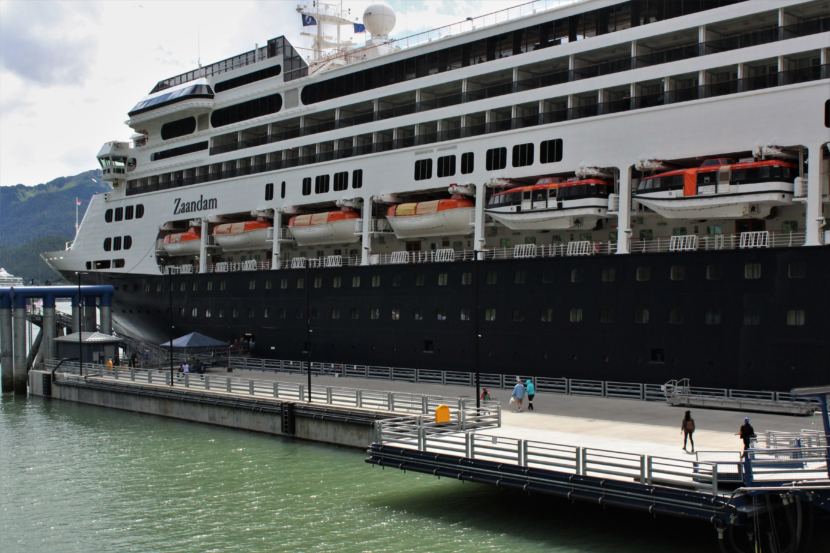
It’s a modern case involving state-of-the-art ocean liners. But attorneys were sparring early Tuesday morning over 200-year-old legal doctrines and 19th century case law.
The Cruise Lines International Association Alaska lawsuit alleges the city’s $8 in fees levied on passengers violate the U.S. Constitution’s “tonnage clause,” which prohibits states from taxing vessels in port.
The cruise industry plaintiffs told the judge the framers considered safeguarding inter-state commerce as important as preventing a state from minting its own currency or declaring war. Those powers are for the feds and the feds alone.
The city attorneys countered that James Madison couldn’t have conceived of vessels bringing more than 10,000 daily visitors into a community of 30,000.
Judge H. Russell Holland asked pointed questions. At times he seemed skeptical of the cruise industry’s argument that services paid with marine passenger fees had to be directly tied to ship operations.
He pointed to public bathrooms as an example.
“Outhouses far from the docks but heavily used by cruise passengers, still need to be cleaned,”the judge said.
The plaintiffs said the city’s fees aren’t legal because they’re not like traditional user fees for goods and services.
“If they were, and they were particularized and they were compensatory you wouldn’t have an argument,” said Washington DC cruise industry attorney Jonathan Benner in an interview outside the courtroom. “It’s a revenue stream that the city has created and then it’s re-dispensing as it sees fit. And we believe that just blows a big hole in the Constitution.”
The city’s defense is that every item spent can be reasonably tied back to benefiting cruise ship passengers. From longer cruise docks for the bigger ships to seasonal crossing guards that control downtown traffic.
“We believe that we have collected fees that are reasonable,” Juneau City Attorney Rob Palmer said in an interview. “We believe that we’re spending the fees in a constitutional way for the betterment of the community and the cruise ship industry and their passengers. And so, this case is a really big deal for the city and we’re doing our best to make sure that we have a community that works.”

Cruise industry lawyers also told the judge they aren’t seeking repayment. They just want the city’s power to levy fees to be narrowed to only pay for dockside services for vessels.
The city counters it wouldn’t make sense to refund fees to the industry anyway since they never paid a penny. It’s the cruise passengers that fork over the $8 as part of their booking.
The judge has several motions – and counter-motions – to rule on before the case moves to trial. In the meantime, both sides are asking for a quick resolution through summary judgment.
There’s also interest in this case outside Juneau. That’s because of the wider precedent it could set.
“Nothing like what Juneau has ever done here has happened,” Benner said. “There is no prior case like this.”
It’s been a costly fight. The city has spent $776,000 on legal defense since the lawsuit was filed in 2016.
At stake is about $10 million in annual revenue to the city. The outcome could also affect the state of Alaska’s own passenger fee. Last year, the state collected $18.5 million. It shared all but $2.5 million with port communities.
The judge remarked from the bench the case is “not a simple matter” and indicated it would be some time before he would rule.